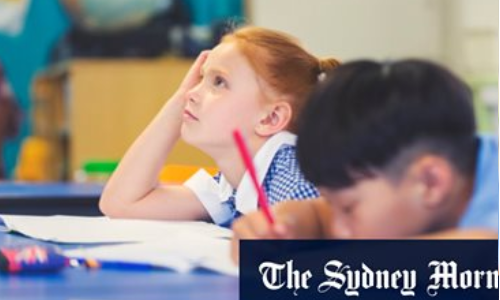The older man has grey hair, and is a bit doddery. He’s mishearing his wife, repeatedly. “Better get your hearing tested!” the TV commercial’s voice-over says light-heartedly.
It’s hilarious! Please excuse the sarcasm. The truth is, it’s not at all funny. Hearing loss is a serious challenge that brings with it many frustrations for a diverse range of people.
I discovered this last year when my daughter, aged eleven, experienced sudden sensorineural hearing loss: she went to bed one night with normal hearing, and woke the next morning with profound, permanent hearing loss in one ear. This affects her life every single day.
It means a teacher forgetting, telling her off for not concentrating when she asks them to repeat something. It’s the exclusion when her friends say, “It doesn’t matter” when she doesn’t hear them. It’s a constant ringing in her ear (tinnitus) as she tries to fall asleep. The assumptions that using a hearing aid should give her perfect hearing. When she forgot her hearing aid one day, she came home from school barely able to function, so extreme was the exhaustion of simply trying to hear.
This is not a comedy routine; this is real life. Mishearing people, or not hearing them, isn’t funny.
On morning TV, David Campbell received the news of his hearing loss. Co-host Belinda Russell made a joke: “Earlier this morning the floor manager said, ‘Camera three’, and next minute you’re going into the next studio because you thought he said, ‘Come in here’.” The pair laughed.
Hearing loss is grossly misrepresented: we are shown, almost exclusively, older people. This demographic is vulnerable to hearing loss, however the perception is that they’re the only ones.
My daughter and I visit hearing centres regularly, where she’s surrounded by images of the elderly. She’s almost a teenager, placed into a box titled ‘The problems with ageing’. This image is created by those who should know better.
Hearing loss is a diverse experience – affecting babies, children and grown-ups of any age – yet it’s presented with a lack of diversity that, perhaps, makes us feel OK about fueling the comedy.
When my daughter hears people laughing about it, she asks why her challenges are comedic.
I say that people don’t know better, they don’t think hearing loss through with empathy. Not yet. I suggest that people will learn when those who don’t fit the stereotype speak up.
So, here we are, telling those in a position to publicly portray hearing loss: you must do better.
This article is from The Sydney Morning Herald. Its author, Megan Blandford is a freelance writer.

